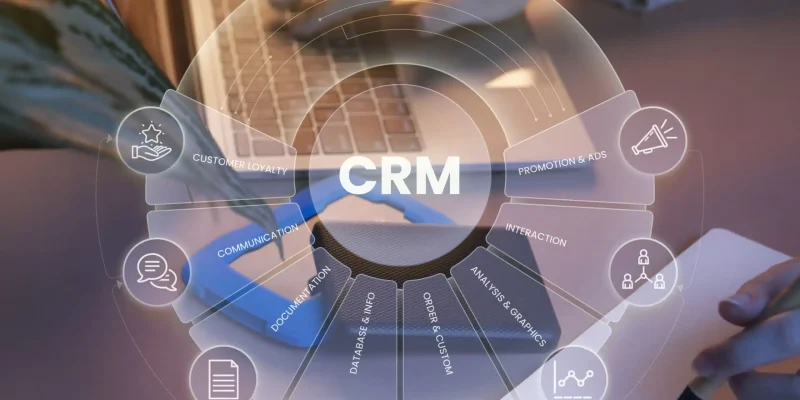HomeCustom ERP Solutions Can Improve Your Business OperationsUncategorizedCustom ERP Solutions Can Improve Your Business Operations
Custom ERP Solutions Can Improve Your Business Operations
How Custom ERP Solutions Can Improve Your Business Operations
What is an ERP Solution?
Benefits of Custom ERP Solutions
- Customization: Custom solutions are designed to fit your specific workflows, business models, and industry requirements.
- Scalability: They can scale your business as it grows, allowing for new features and modules to be added when necessary.
- Improved Efficiency: Custom ERP solutions eliminate redundant processes and automate routine tasks, improving efficiency across departments.
- Better Data Management: With all business data centralized in one system, you can gain valuable insights and make data-driven decisions faster.
- Enhanced Flexibility: These solutions can be easily modified or expanded as business needs change, ensuring long-term value.
Let’s dive deeper into how custom ERP solutions can benefit key industries.
Manufacturing
The manufacturing industry relies heavily on efficient supply chain management, production scheduling, and resource allocation to maintain profitability. A custom ERP solution designed for manufacturing businesses integrates all these functions into a single platform, ensuring seamless coordination between production, inventory, and procurement.
Key Benefits for Manufacturing:
- Automated Production Planning: ERP solutions help manufacturers schedule production runs based on current inventory levels, customer orders, and demand forecasts, reducing waste and improving on-time delivery.
- Real-Time Data: Manufacturers can access real-time data on machinery performance, workforce productivity, and material availability, enabling faster decision-making.
- Inventory Management: Custom ERP systems provide detailed inventory tracking and management, helping businesses reduce excess stock and improve just-in-time manufacturing.
- Quality Control: By integrating quality control mechanisms into the ERP, manufacturers can ensure compliance with industry standards and reduce the risk of defective products.
Textile Industry
The textile industry faces unique challenges such as rapid changes in fashion trends, fluctuating demand, and complex supply chains. A custom ERP solution can help textile companies manage these challenges by streamlining operations, enhancing supply chain visibility, and improving product lifecycle management.
Key Benefits for Textiles:
- Supply Chain Optimization: With ERP solutions, textile businesses can track raw materials, monitor supplier performance, and optimize the flow of materials from suppliers to production lines.
- Product Lifecycle Management (PLM): Custom ERP systems help textile companies manage product design, development, and production processes efficiently, reducing time-to-market for new products.
- Order and Inventory Management: ERP software allows textile manufacturers to manage large volumes of customer orders and monitor inventory in real time, ensuring on-time delivery and reducing overproduction.
- Cost Management: Custom ERP solutions help textile businesses manage their production costs more effectively by monitoring labor, material, and overhead costs in real-time.
Retail Industry
The retail industry is highly dynamic, with customer preferences and shopping behaviors constantly changing. A custom ERP solution can help retailers optimize their operations, manage inventory more efficiently, and provide better customer experiences.
Key Benefits for Retail:
- Omnichannel Integration: ERP systems help retailers integrate their online and offline sales channels, providing a seamless shopping experience for customers across platforms.
- Inventory and Supply Chain Management: Custom ERP solutions offer real-time tracking of inventory levels across multiple locations, ensuring that stock levels are optimized and preventing stockouts or overstocking.
- CRM Integration: By integrating CRM solutions into ERP software, retailers can manage customer relationships more effectively, track customer preferences, and offer personalized marketing and promotions.
- Financial Management: Custom ERP solutions offer comprehensive financial management capabilities, from accounting and payroll to sales tracking, allowing retailers to maintain profitability and reduce operational costs.
Logistics and Supply Chain Management
Logistics and supply chain management require tight coordination between suppliers, distributors, and customers. A custom ERP solution can streamline logistics management, from order processing to warehouse management and transportation.
Key Benefits for Logistics:
- Real-Time Visibility: Custom ERP systems provide real-time visibility into every stage of the supply chain, allowing businesses to track shipments, manage warehouse operations, and reduce delivery times.
- Route Optimization: ERP solutions can optimize transportation routes, helping logistics companies reduce fuel costs and improve delivery efficiency.
- Warehouse Management: Custom ERP solutions integrate warehouse management features such as inventory tracking, automated stock reordering, and order fulfillment, ensuring seamless operations.
- Order Processing: Custom ERP solutions can automate order processing, reducing human error and ensuring accurate, on-time deliveries.
Healthcare Industry

The healthcare industry faces regulatory pressures, rising operational costs, and the need for better patient care. Custom ERP solutions tailored for healthcare providers can streamline administrative tasks, manage patient data, and ensure regulatory compliance.
Key Benefits for Healthcare:
- Patient Data Management: ERP systems help healthcare organizations manage patient records, billing, and appointments in one platform, improving the accuracy and security of patient information.
- Compliance Management: Custom ERP solutions ensure compliance with healthcare regulations such as HIPAA by providing secure data storage and audit trails for sensitive patient information.
- Inventory and Supply Management: Hospitals and clinics can use ERP solutions to track medical supplies, manage stock levels, and ensure that critical items are always available.
- Financial Management: Custom ERP systems streamline financial processes such as billing, payroll, and expense tracking, helping healthcare providers reduce administrative costs and focus more on patient care.
Integration with CRM Solutions

In addition to ERP solutions, many industries also benefit from integrating CRM (Customer Relationship Management) systems. CRM solutions focus on managing customer interactions, improving sales efficiency, and building long-term relationships.
Benefits of CRM Integration:
- Unified Data: By integrating CRM solutions with custom ERP systems, businesses can manage customer data and sales pipelines alongside their operational data.
- Enhanced Customer Experience: CRM solutions provide insights into customer preferences, allowing businesses to offer personalized service and improve customer satisfaction.
- Sales Forecasting: CRM integration helps companies forecast demand more accurately, ensuring that production and inventory management processes align with customer needs.
Conclusion: The Future of Custom ERP Solutions
As industries continue to evolve, custom ERP solutions provide the flexibility and scalability needed to adapt to new challenges and opportunities. From manufacturing and textiles to retail, logistics, and healthcare, businesses across industries can benefit from the streamlined operations, real-time data, and improved decision-making capabilities offered by custom ERP systems.
Partnering with a leading ERP software company or CRM software company that understands your industry’s unique requirements is crucial for maximizing the value of these solutions. By implementing a custom ERP system, your business can improve operational efficiency, reduce costs, and stay ahead in an increasingly competitive market.
